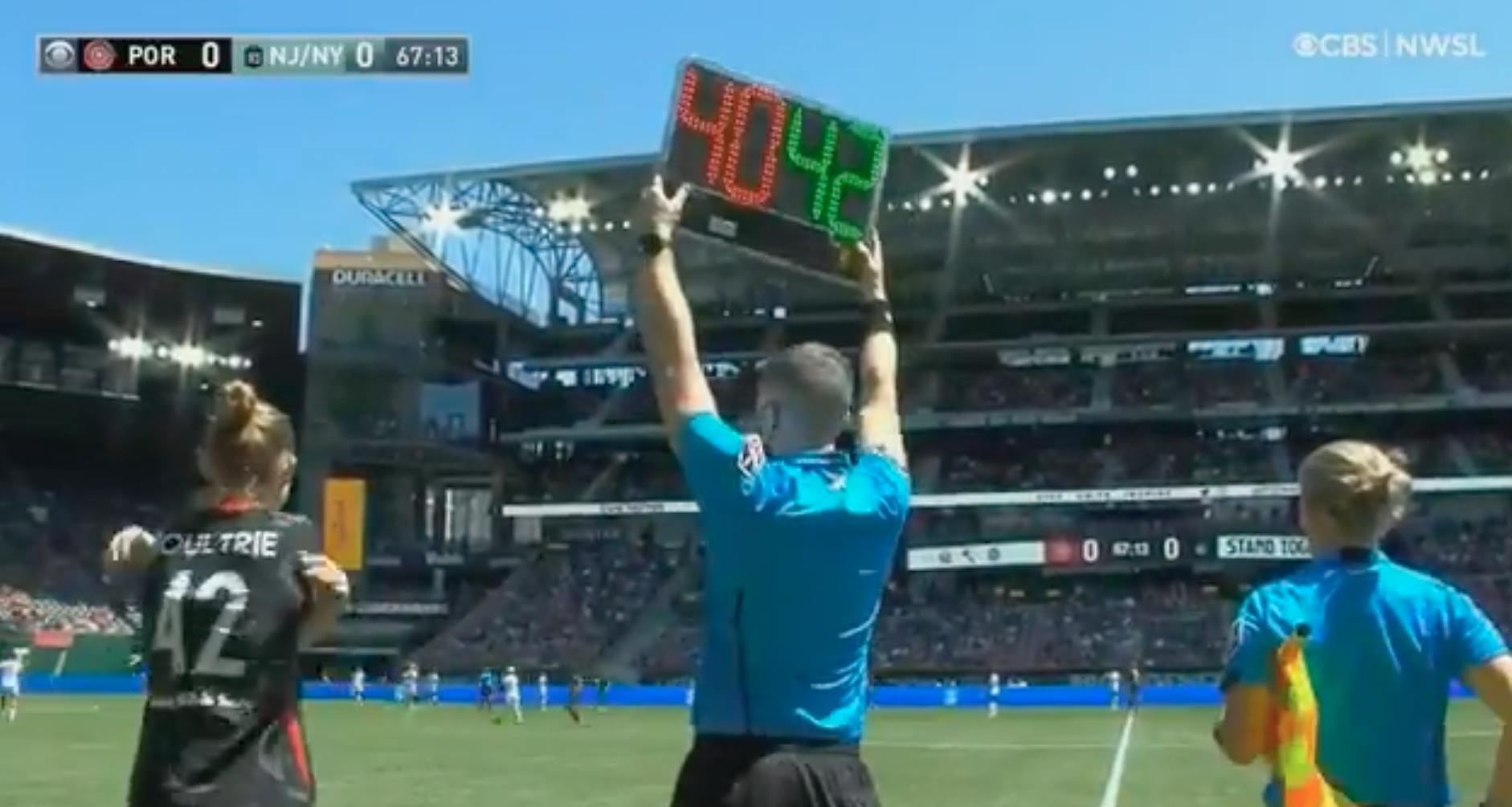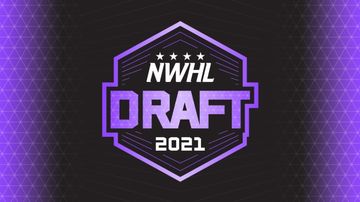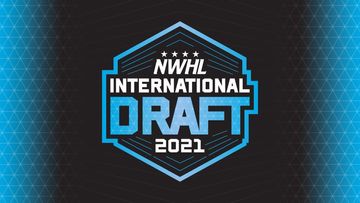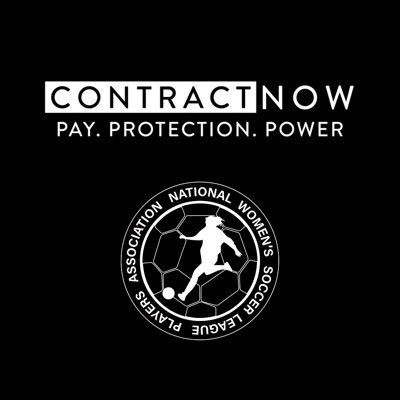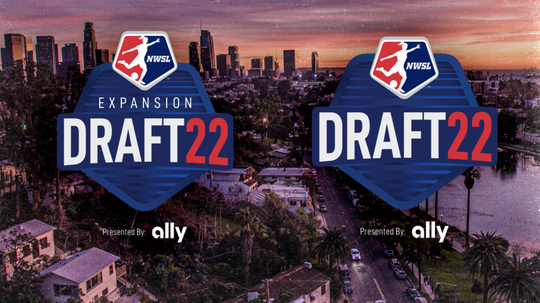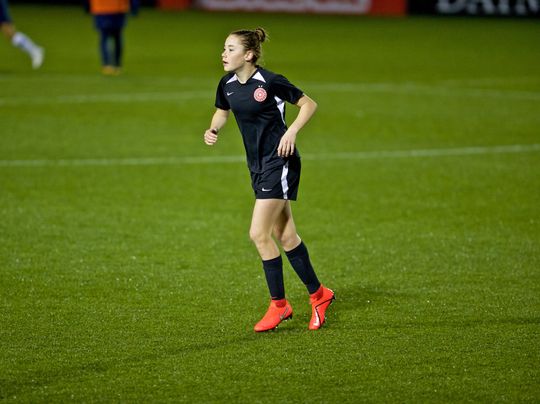After two years of training with the Portland Thorns plus a lawsuit against the NWSL, 15-year-old Olivia Moultrie signed a three-year contract with the club on June 30. Three days later, she made her professional debut as an 83rd-minute substitute against Racing Louisville FC. Moultrie took the field again as a second half sub a week later – this time to play her first minutes at home at Providence Park.
"I'm so excited that the debut was able to happen tonight," Moultrie said after the Louisville game, "and that I could get rolling and get on the field. With these games coming, I just hope I can continue to prove myself in training and do what I need to do and put myself in the position to play."
On its own, it's already noteworthy: Moultrie is the youngest player to sign with an NWSL team. This is the result of the aforementioned lawsuit over the league’s requirement that its players be at least 18 years of age, so Moultrie is the first exception. She is the youngest player to ever take the field in the NWSL. That she was able to secure a contract for the next three years is pretty cool to see; it's a tangible symbol of Portland's commitment to her development. And if she turns out to be a major piece for the Thorns during that time, I – especially speaking as someone who grew up in Portland – can't say I'll be upset about it.
Through a broader lens, Thorns head coach Mark Parsons said the revised age rule is huge for player development in the United States. He pointed to Mal Pugh’s reported attempt to go pro in 2016 and the NWSL Draft rule change that allowed Tierna Davidson to declare before she exhausted her college eligibility in 2018. "We're slowly making progress on [...] providing more pathways for young players," he said.
That is good for parity when you're competing internationally against countries who do allow players to play domestically before they turn 18. It also brings the NWSL into alignment with men's leagues, who don't normally enforce a minimum age rule or require college eligibility to be exhausted before signing.
And it's good for Moultrie, who has looked solid in her first 29 professional minutes.
At the same time, I can't be the one who's struggling to separate Moultrie's NWSL career from its context and the family that surrounds her.
Specifically, as we've heard time and time again, Moultrie verbally committed to the University of North Carolina at the age of 11, decided to go pro instead when she was 13, and most recently signed with and earned her first minutes for the Thorns as a 15-year-old.
The things we sometimes hear are that her parents have paid for Moultrie’s personal coaching since she was six, built a turf field for her in their backyard (and a partial basketball court for her sister), and were able to financially support Moultrie's move to Portland to train with the Thorns.
This is just the tip of the iceberg in terms of the resources that have been put into Moultrie's career. In 2018, Andrew Keh wrote in the New York Times that Moultrie's father had made her professional growth his "primary job."
This is a career pathway that is inaccessible to almost everyone, in a youth soccer landscape that already faces critique for its barriers to entry. It's not like everyone's going to be a professional soccer player, but that lack of access is something that I don't think we can erase from this discussion. Even if your best 15-year-olds on the pitch are physically good enough to play professional soccer, how many of them will have the support systems around them to do so?
"The bigger picture is this pathway being broken down is going to be important for the future of top, top, top, the naught 1% youth player in this country," Parsons said, "which also then is going to go on and have a massive impact for the U.S. senior national team in the long term."
He added: "If they're already where they are, imagine where they can be if we continue to support this pathway – with a massive warning of the sensitivity and how you need to be so careful when managing the pathways for young players and the needs for young players and the welfare of young players."
While Parsons has seemed generally aware of how he talks about having a 15-year-old on his roster, I'm still struggling with the language with which the wider soccer community talks about Moultrie, her case, and her career. I know I'm not the only person who feels uncomfortable with the phrase "if she's good enough, she's old enough" – which was used by many to push Moultrie's case for joining the league – especially when it's primarily being said by older men. It doesn't help that OL Reign CEO Bill Predmore described Moultrie as "uncommonly mature" when explaining his decision to trade her to the Thorns.
"The expectations for a player that's been training with a team for two and a half years now and is now able to play – we're gonna see it across the league," Parsons said, pointing to the game time opportunities that are arising for players around the NWSL during the 2021 season's Olympic absences. "There's gonna be a lot of players making their first minutes for their teams across this league. Those players, including Liv, are going to play well, and those players also won't get it perfect."
Even if we haven't publicly seen any members of the Thorns organization make suggestions about Moultrie's relative maturity, that doesn't mean that framing isn't still being used in various public and private spheres. The ramifications of such language around Moultrie's career are something I hope we – both those who cover the league and those who are directly involved in it – are conscious of as we talk about Moultrie going forward. Kids who adults might describe as "uncommonly mature" are still just kids, many of whom have been taught or have learned to behave a certain way around adults.
And when we talk about the significance of Moultrie's NWSL debut, it's important to contextualize her path to this opportunity as one coming from an immense amount of privilege. If the NWSL is serious about opening the doors for exceptional young athletes to go pro, they need to intentionally create an environment where players who don't have the same level of support and resources as Moultrie can have a path to success and be safe – and still be kids – in the process.
(Photo: Portland Thorns/CBS)
